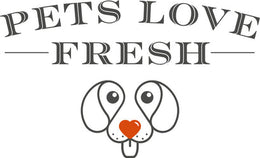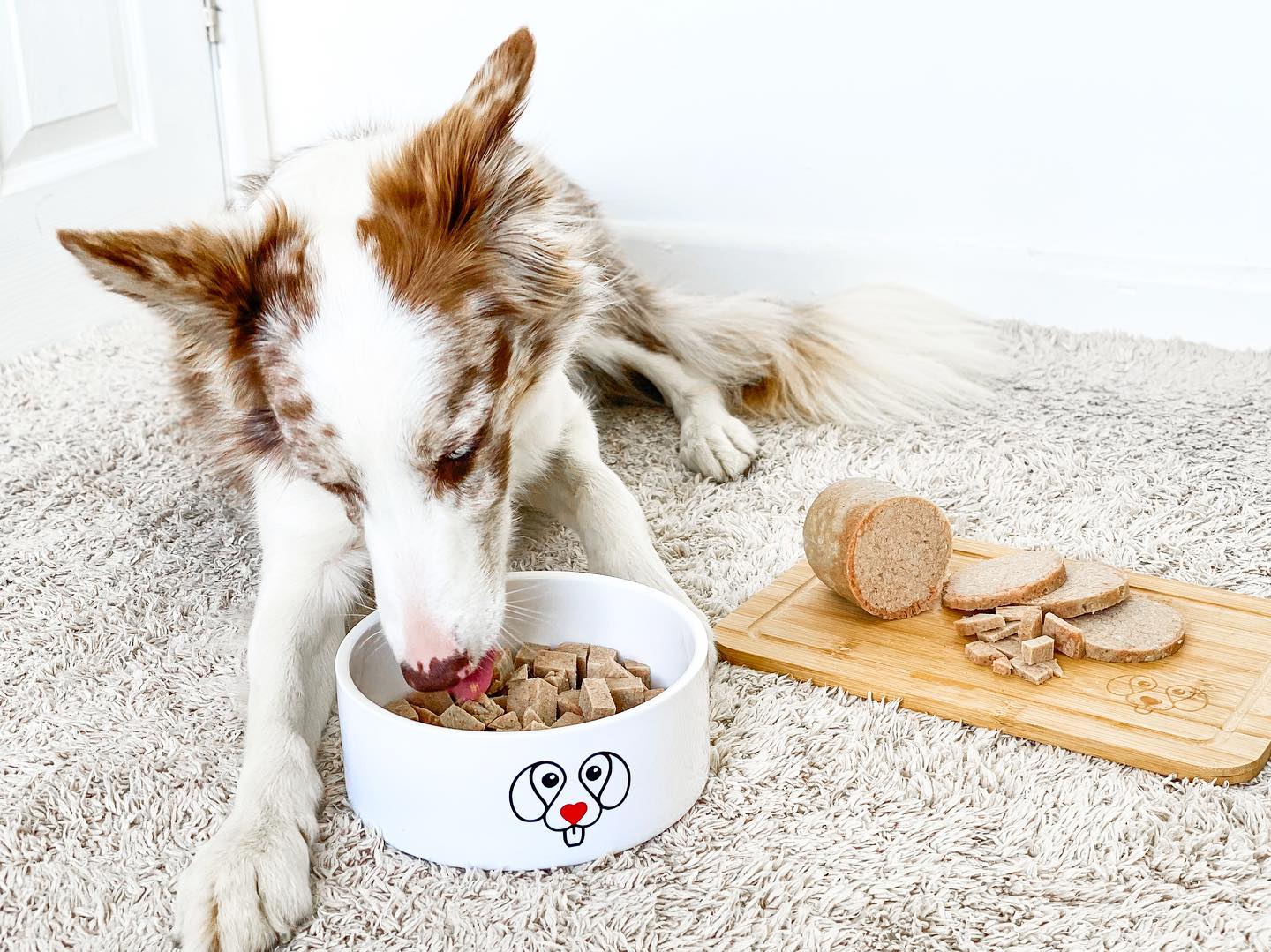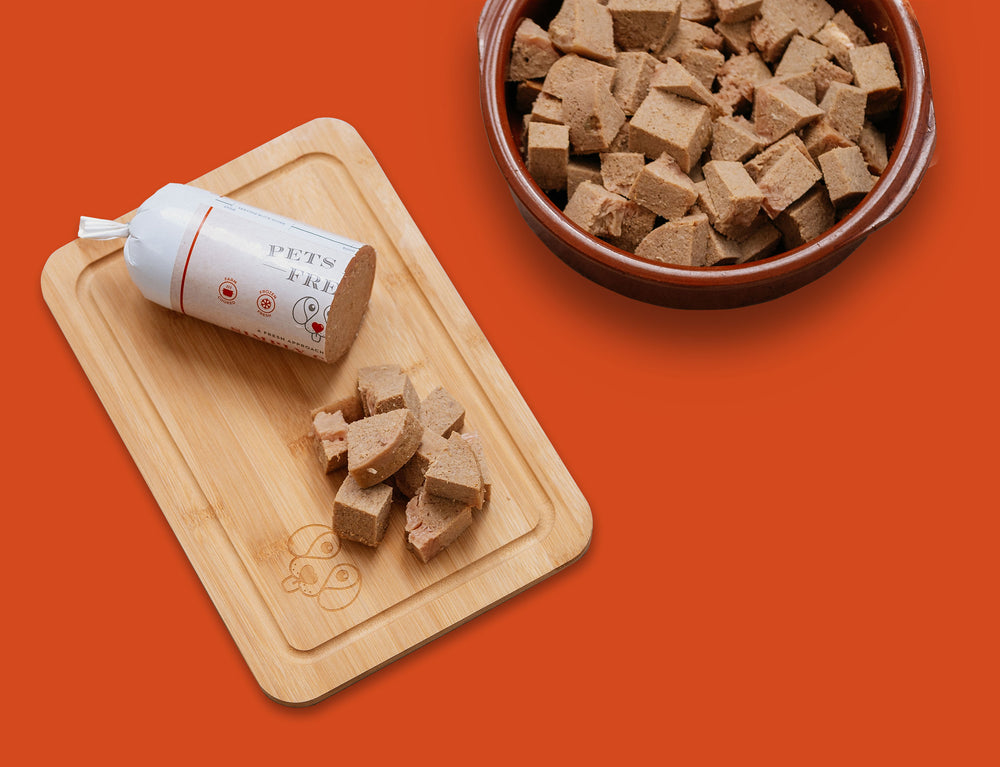Prebiotics For Dogs: What Are They & Are They Important?
Prebiotics are a type of fibre that is used to specifically help with our dogs’ digestive tract by stimulating the growth of certain bacteria. These fermented soluble fibres lie in the gut and effectively feed the good bacteria, also known as probiotics, helping to prevent disease, improve nutrient absorption, and enhance the immune system.
Both prebiotics and probiotics are important for our pups' gut health, especially when they have digestive issues. The combination of the two is called synbiotics, and is often used to help balance a dog's gut health, after an operation, vaccination, or simply an upset stomach.
What Are Prebiotics For Dogs?
To go into more detail, prebiotics are a type of soluble fibre that fuels and sustains probiotics - the good bacteria in the gut. They can be given to dogs that are experiencing digestive troubles, and can often help them settle their stomachs.
When the fibres come into contact with water or the fluids found in a dog's digestive tract they dissolve into a gel-like substance. This is then digested by good bacteria, which can in turn thrive in the gut for longer. Without prebiotics, probiotics will not work as effectively, so both supplements are often given to dogs when they require them.
The soluble fibres in prebiotics can derive from many different sources, but generally they come from the indigestible components of plants, such as carrots, kelp, broccoli, and even brown rice.
Are Prebiotics Good For Dogs?
Prebiotics are often administered to dogs to help them get over operations, vaccinations, or digestive issues because they are able to target specific types of bacteria, and ignore the bad bacteria that exists in the gut. They can then begin to ferment, and produce short-chain fatty acids that can offer a whole range of benefits. These include:
- Decreasing the risk of any disease in the gut
- Reducing swelling and inflammation
- Reducing or stopping the growth of bad bacteria
- Maintaining a healthy digestive fluid balance
So yes, prebiotics, when used in conjunction with probiotics, will help your dog maintain a healthy gut, and replenish all the good bacteria leading to many of the benefits above.
What’s The Difference Between Prebiotics And Probiotics For Dogs?
While we’ve gone into detail about prebiotics and how they help maintain a healthy gut, probiotics are the bacteria that benefit from them. The World Health Organisation defines probiotics as “live microorganisms which when administered in adequate amounts confer a health benefit on the host”. Essentially, probiotics contain live bacteria that will thrive on the prebiotics present in the gut.
The main difference is that probiotics are living organisms, while prebiotics are a type of plant fibre that can be eaten and digested by probiotics. Both work in unison to achieve healthy digestive tracts.
Another difference is how easy they are to add into your dog's diet. Probiotics can be slightly more difficult because they are not as easy to add into your dog's food. Prebiotics can be added to your dog's current meal plan, in the form of cut up carrots, kelp, and other high fibre plants. Probiotics on the other hand generally come in the form of specialised treats, powders, and pills. The easiest way to get probiotics into your dog’s diet is with probiotic and gut-healthy dog foods, check out our range of probiotic dog food.
What Foods Contain Prebiotics For Dogs
Many foods contain the soluble fibres that make up prebiotics, and can easily be added to our dogs' meals. Most can be added to their bowl with regular dog food, while some can be given as treats on their own. Here are a few examples of high fibre foods that make great probiotics:
- Bananas - A great low calorie, high fibre fruit. Not only an excellent prebiotic, bananas contain high amounts of potassium, which aids in the function of your dog’s heart and muscles, along with vitamin B6 which promotes healthy brain function and the production of red blood cells. Due to their high sugar content, bananas should be given to dogs in moderation.
- Flaxseed - Along with being high in fibre, flaxseed also contains alpha-linoleic acid, which helps your dog's immune system.
- Apples - An excellent source of vitamin C, which works as an antioxidant, and is high in fibre.
What Are Prebiotics In Dog Food?
The best way to find prebiotics in your dog food is by looking at what’s actually in it. If there are high fibre substances like carrots, brown rice, beet pulp, raw oats, soy beans, or inulin, then the food will function as a prebiotic. They can also come in the form of dental sticks, or as a pill that can be added to your dog's food. Some high fibre dog foods also include natural prebiotic ingredients.
Always be on the lookout for the ingredients list, and you’ll be able to identify which dog foods will protect your pup’s immune system, and help your dog's digestive tract bacteria thrive. For more help, keep an eye out for anything vet recommended, or developed.
Prebiotics For Puppies
Puppies can have prebiotics in the same way an adult dog can, and they will see the same benefits. It might even be wise to get your dogs used to high fibre foods early on, so that their digestive systems will not be disrupted when they are introduced later.
Introducing prebiotics slowly will help them avoid any of the side effects of prebiotics. This will then help stimulate a healthy gut for your puppy, ensuring they will grow strong, with a health Immune system.
Order a puppy taster pack full of natural probiotics and see if your pooch loves it as much as ours do.


